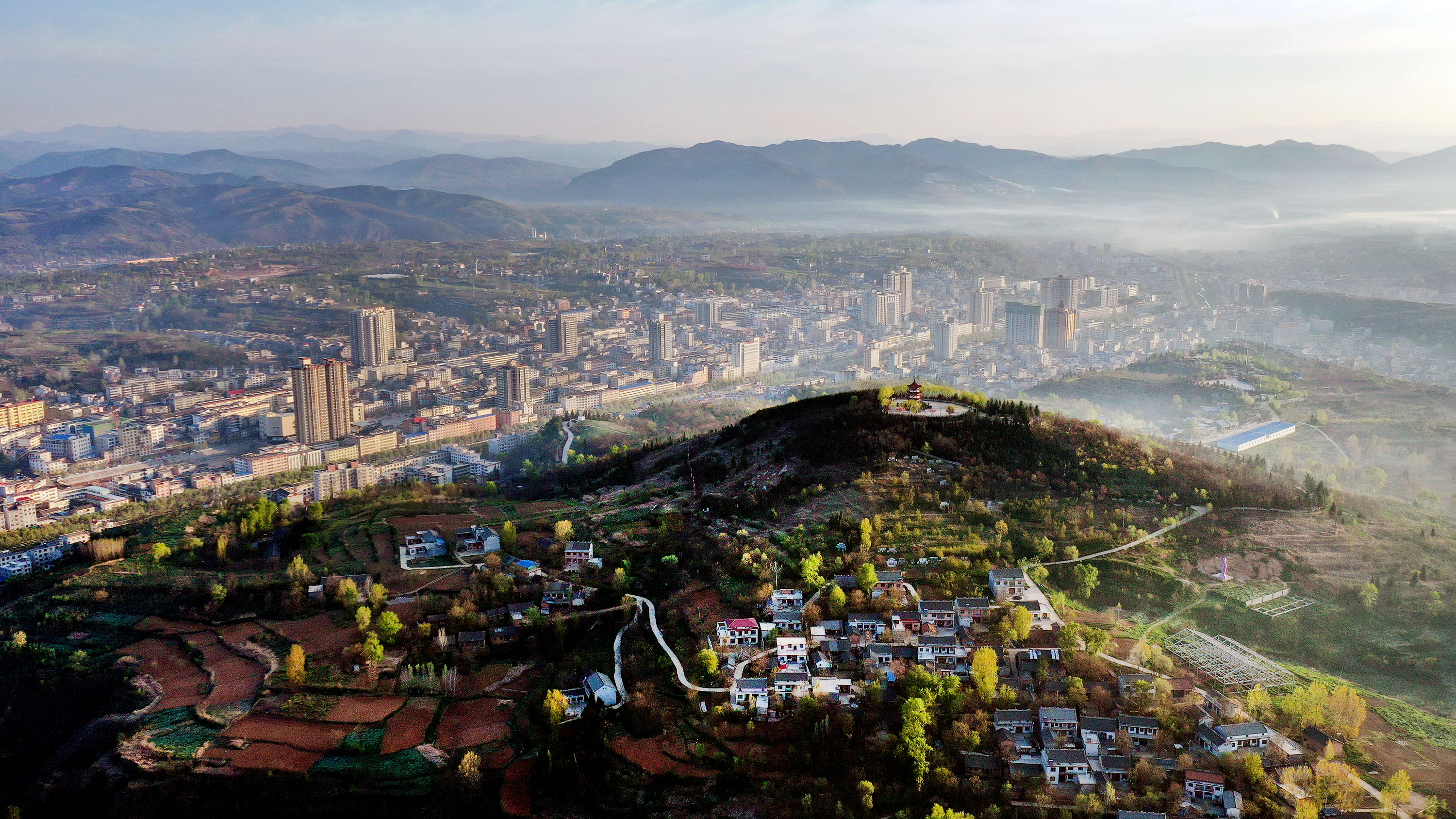Qinling Mountains a window into China's progress in ecological civilization
Great efforts have been made in recent years to protect the Qinling Mountains, considered by many as a window into China's progress in ecological conservation.
Xi Jinping, general secretary of the Communist Party of China (CPC) Central Committee, on Monday inspected the work of ecological conservation in the Qinling Mountains in northwest China's Shaanxi Province.

A view of the Luonan county at dawn in northwest China's Shaanxi province, April 13, 2020. The county is located in the Qinling Mountains. [Photo/Xinhua]
As a natural boundary between the country's north and south, the Qinling Mountains are home to a huge variety of plants and rare wildlife such as giant pandas, golden monkeys and crested ibis.
Great efforts have been made in recent years to protect the Qinling Mountains, considered by many as a window into China's progress in ecological conservation.
For more than two decades, Xiao Jianjun, head of the Dongtai New Village in Chang'an District of Xi'an, capital of the province, has stuck to planting trees in the Qinling Mountains.
Xiao decided to plant trees in the mountains in 1999 when the Chinese government launched a campaign of returning unproductive farmland to forest and grassland.
Last weekend, Xiao and his villagers planted seven osmanthus trees, two honey locust trees and four red maples to help restore the local environment.
Chang'an District is in the core area of the northern slope of the Qinling Mountains. About 876 square km out of the over 1,000 square km of the district are in the Qinling Nature Reserve. The area had suffered from multiple environmental problems such as illegal construction of villas, quarrying and pollution of water sources in the past.
Dongtai New Village was no exception. According to Xiao, the village faced financial difficulties in 2003. It rented out part of its barren slope to villa builders to help villagers have access to tap water with the rent.
As China has vowed to push for coordination between economic and social development and ecological civilization, the central authorities attached great importance to the illegal construction of villas in the Qinling Mountains and ordered local government to tackle the problem in 2014.
A total of 1,185 illegal villas at the northern foot of Qinling range were demolished in 2018.
"After these illegal buildings had been demolished, we planted more than 1,200 pines on the land," said Xiao. "From then on, planting trees and protecting trees have become our resolute belief."
Thanks to the government's policies on protecting the environment of the Qinling Mountains and local villagers' persistence on planting trees, the Dongtai New Village is now home to more than 10,000 trees.
In the wake of the campaign against illegal construction in the Qinling Mountains, about 178 hectares of green space has been restored in the northern slope of the Qinling Mountains, with 22 quarries closed and 57 sewage treatment plants built.
Wang Qingfeng, Party chief of Chang'an District, said 151 villages in the district have been renovated to meet the standard of having a greening rate of over 40 percent.
The other 52 villages under renovation are expected to meet the standard at the end of July. The district also plans to build nearly 100 parks in its urban area and outskirts.
To better protect the environment of the Qinling Mountains, especially to deal with the problems of tourists management and wildfire prevention, Chang'an District has set up an intelligent management and control system over the eight main valley mouths leading to the mountains to monitor persons and vehicles entering the mountains.
"Through the system, we can scientifically define the ecological carrying capacity so as to manage the number of tourists and the vehicles entering the mountains," said Xue Yazhou, director of Qinling environment protection and comprehensive law enforcement bureau in Chang'an District.
The local government has mobilized more than 26,000 volunteers to help clean the environment, plant trees and promote environmental protection awareness.
"By guarding the valley mouths, the environment of the Qinling Mountains will be well conserved. Our goal is to turn its eight valley mouths into nature parks, " Wang said.

